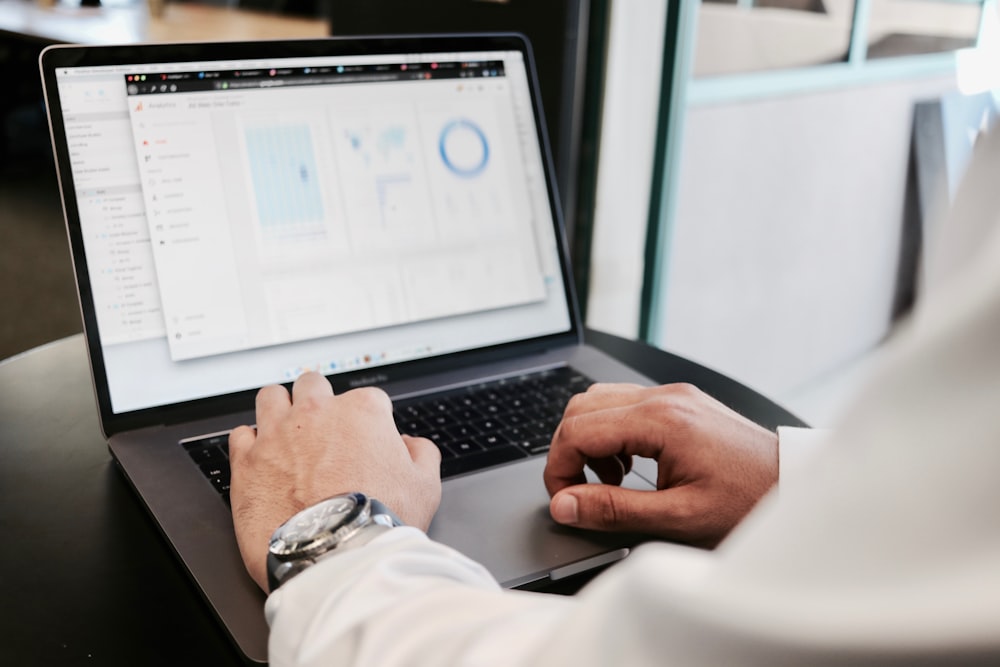Data has become a primary mode of knowledge production in the 21st century. It is both a matter to be analyzed and an infrastructure for analysis as it becomes increasingly integrated into our everyday lives. As this shift occurs, data itself becomes a site for power relations within social institutions-such as NGOs.
However, as it stands today, most NGOs find themselves struggling with the best way to go about this. It is easy to see that there is a need to leverage data and analytics for more efficient performance and better decision-making.
This article offers insights into developing an approach that will help nonprofits and businesses collect data in order for them to answer business questions with actionable intelligence.
There are 4 ways data can help an NGO
An NGO has great opportunities in using data strategically, more so than in any other industry, to improve the impact of their cause on society. Data is an aspect that exists at all levels of an NGO’s work-operational, programmatic, fundraising, and more.
Budgeting
Budgeting is one of the most important aspects of an NGO.
When it comes to budgeting, data can be used to determine the needs and wants of an organizations’ programs. The more data that an organization has about its spending habits, the easier it becomes to determine what is necessary and beneficial vs. what is not.
This data can also demonstrate whether certain programs are worth the investment or if they need to be re-evaluated in some way. For example, a non-profit may have a budget allocation for a certain program in a specific location, but with data on the usage of social media in that area, they may find out that people in that country have vastly different needs than they had originally thought, which would change the allocation of resources.
Fundraising
Data can also help an NGO with fundraising. The planning for an organization’s funding becomes much more efficient with data. This is especially important when it comes to soliciting donations from investors because these are the people who will most likely be giving money to them in the future.
Targeting potential donors and telling them about what an organization has done and offers should always remain central, but presenting that information in a way that stands out and relates to potential donors is just as essential. Data helps by showing nonprofits where their supporters’ interests lie, which can then be used to mold outreach strategies accordingly.
It is important to take into account what donors are looking for in their investment choices, how they perceive the organization, and where that perception may need reinforcement or repair.
Donors and funders will also want and need to know that their resources are being properly utilized and maintained, which is why they should always be receiving reports on how work is progressing. Again, the best way to do this is by ensuring you have a solid framework for collecting data in place ahead of time, giving you the ability to easily submit what is needed at any given time. Making sure expectations are set from the get-go will prevent issues later on when crunch time comes around.

Monitoring activities
An organization’s initiatives require constant monitoring so that their goals are being met and progress is made accordingly. Without proper tracking mechanisms in place, this monitoring becomes much more challenging, especially with complex projects and programs.
Data can help an NGO in this process through the collection of vital statistics, reporting social media monitoring results, and even reporting back on activities that were carried out.
For example, a Non-governmental organization may be working to improve health care for a certain group of people or animals. Data should be collected about the number of these services provided per community over time as well as data about how satisfied those receiving these services are. This will allow an NGO to determine whether their programs are meeting the needs they set out to serve or if changes need to be made.
Streamlining operations
Operationalizing an NGO can be a difficult process, but data provides a plethora of information that helps to provide standardized processes and smooth operations.
At the level of efficiency, streamlining operations can:
- Minimize costs while maximizing the amount of services provided.
- Save time while minimizing unnecessary expenditures or work.
- Make it possible to determine what procedures are most efficient and effective.
There’s no need to spend hours analyzing complex data sets when you can get the same information quickly and easily with a few keystrokes or clicks on your mouse. Data-driven work has only become more efficient and straightforward over time, and because of this, it’s never been easier to take advantage of what these insights have to offer an organization.
For example, if a non-profit has been working in several different countries it would create far less confusion and make management much more streamlined if each country had access to the same data as other establishments. This will allow organizations to easily track and transfer best practices and build upon what others have done without creating discrepancies across the board.
How is this exactly done?
-
First step: Collecting Data
The first step should be deciding how you’re going to collect your data, determine who will own that responsibility (from the CEO down), which will help set up policies for both collection and use of such information. This must also include setting up appropriate processes for implementation, implementation of policies, and appropriate analysis.
-
Second step: Evaluating and assessing data
The next step will be to determine what data the NGO actually needs the most, which will depend on the purpose of their work. If they are looking to maximize their success then they should focus more on collecting data that they can readily use in making future plans for implementation. This also means thinking about creating goals around where you wish to be with your objectives and creating a path for getting there.
After deciding these factors it is important to implement any policies thought up during this process, following through every time information is collected or used if applicable. These simple pieces of information help create bigger pictures over time.
With an organization’s goals clearly stated then a plan can be carried out accordingly. Without a clear idea of what needs to happen every step of the way however things can become chaotic and not as impactful as they might otherwise. Considering the fact that it is a great idea to have a data collection plan in place will help ensure that you are always able to move forward successfully based on your needs, desires, and most importantly those of your community.
Understanding and managing Data for an NGO
Supply chain
Proper understanding and management of all data that is collected are vital for the success of an NGO. They will need to know what information is most valuable and how it can help them achieve their goals as well as those of their community.
An NGO might use the knowledge they glean from such data to develop further goals or adjust some aspects of their programs depending on factors like cost, impact, etc.
Partnerships with other NGOs could be developed based on this information as well as relationships with companies who can provide needed tools or services. Donors are also more likely to give when the organization in question has previous successes under its belt resulting from solid data tracking practices.
None of these processes are possible without the proper management of the data and its use.
How much did we spend?
One very important aspect of data management for an NGO is that of budgeting. Without proper records of how much money has been spent, where it was used and the results achieved it makes it very difficult for an organization to move forward effectively. These measures are all part of a bigger picture but errors in any one area could cause serious hiccups over time if not corrected promptly.
Lack of proper accounting practices within an NGO creates many major problems especially when they are not able to report back on their progress or lack thereof.
Without proper budgeting, it is possible that an NGO might not have the funds available for certain projects when they are actually needed. On top of this, they also run the risk of running out of money in order to carry out all their plans effectively if these errors are not identified and corrected promptly.
How much did we save?
Managing your money on a daily basis is important but it is even more crucial to consider the bigger picture of what this information can do for you long-term. When an NGO uses data they are able to see how their efforts over time have contributed to the goals of the organization, how much money has been spent, and where.
With all of this hard work being done, it becomes vital that reports are kept upon by staff members who are compiling this data either electronically or manually. When everything is properly organized then future roadblocks can be avoided with great ease which makes using data so attractive for organizations trying to achieve their goals efficiently and effectively.
What were our outcomes?
Another important aspect of managing your finances within an NGO is to understand the outcomes being achieved. This data can be used in order to change or adjust programs that are not working properly because it shows that something has gone wrong somewhere. If an NGO does not have access to any of this information then they are unable to determine where their time, money, and energy are best spent.
The path forward
The importance of data in an NGO is enormous. It’s the only means through which NGOs can measure their performance and progress. Data collected properly can help them make better decisions, plan future strategies and adjust programs and goals, be more efficient and accountable to donors, mobilize communities for change better, etc.
Beyond the social impact that NGOs achieve with this knowledge-building process, data is also a valuable resource for donors. NGOs can provide much more nuanced reports to donors when they have accurate and reliable information about the communities they work with. Data allows them to make very specific requests of their partners in return, leading to better use of funds that go into NGO coffers.
In brief, NGOs must take advantage of the latest technologies to raise their game and provide better service to communities they work with. The more innovative NGOs that are finding creative ways to use data analysis will be the ones that survive in this field, as others will fall behind the curve of progress.
How can we help?
As a technology startup, we specialize in the creation and development of data solutions for Life Sciences, Financial Services, and Government organizations.
Our team of data experts and developers here at MajestEYE has recently launched new solutions specifically for NGOs. We aim to empower NGOs to leverage the use of data for action and impact to help combat growing problems around the globe.
To learn more about these solutions, get in touch with a member of our team here.







